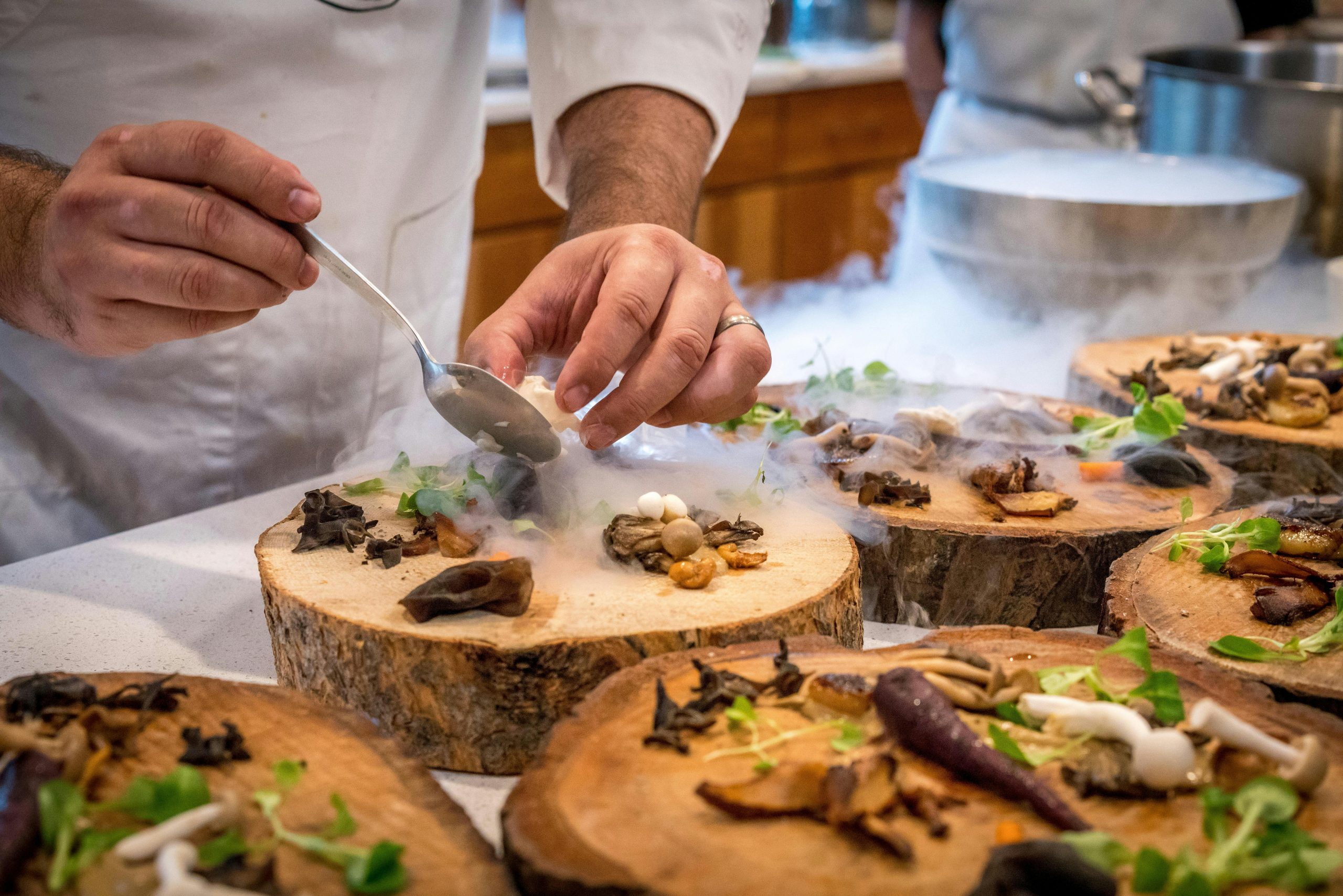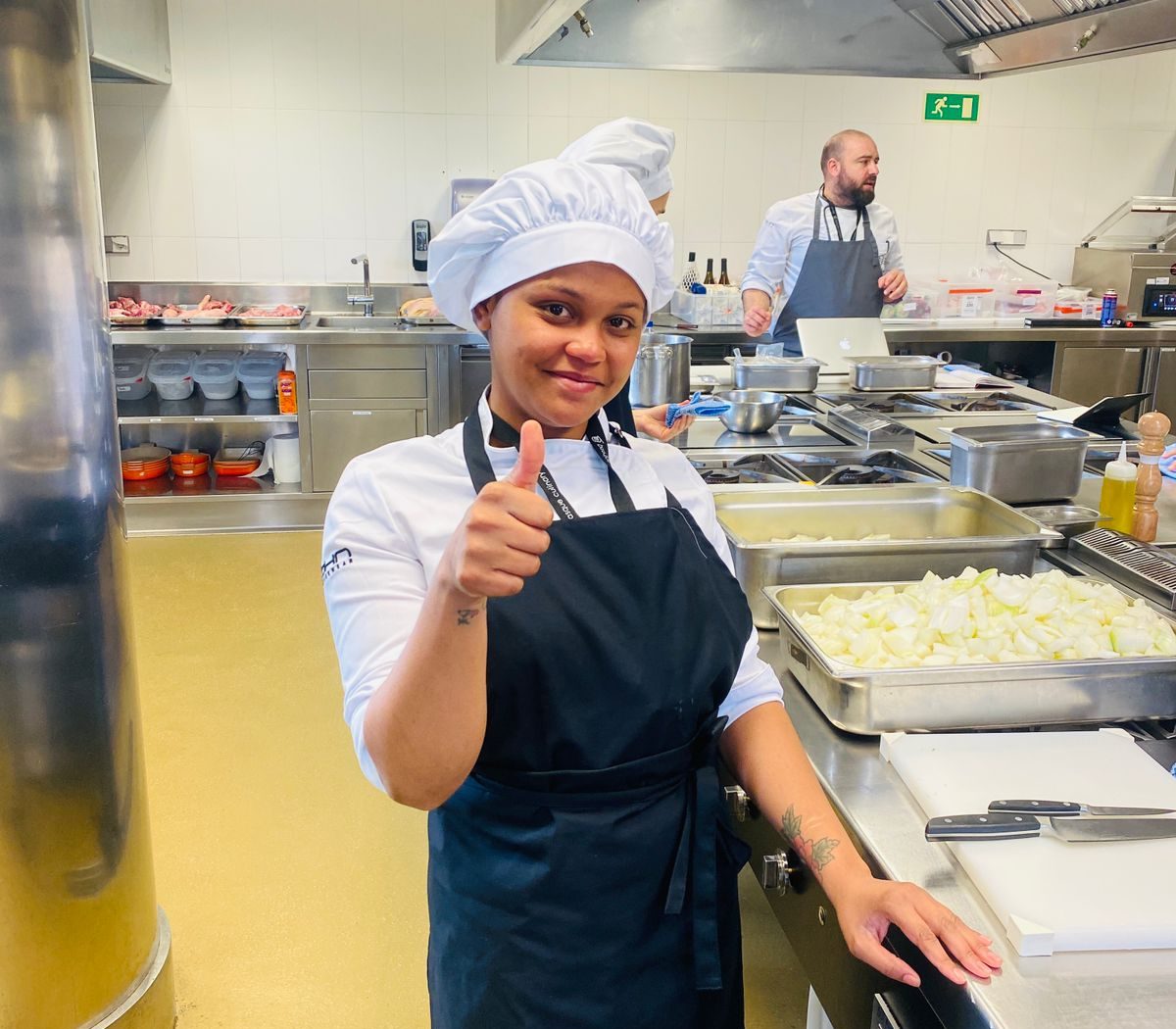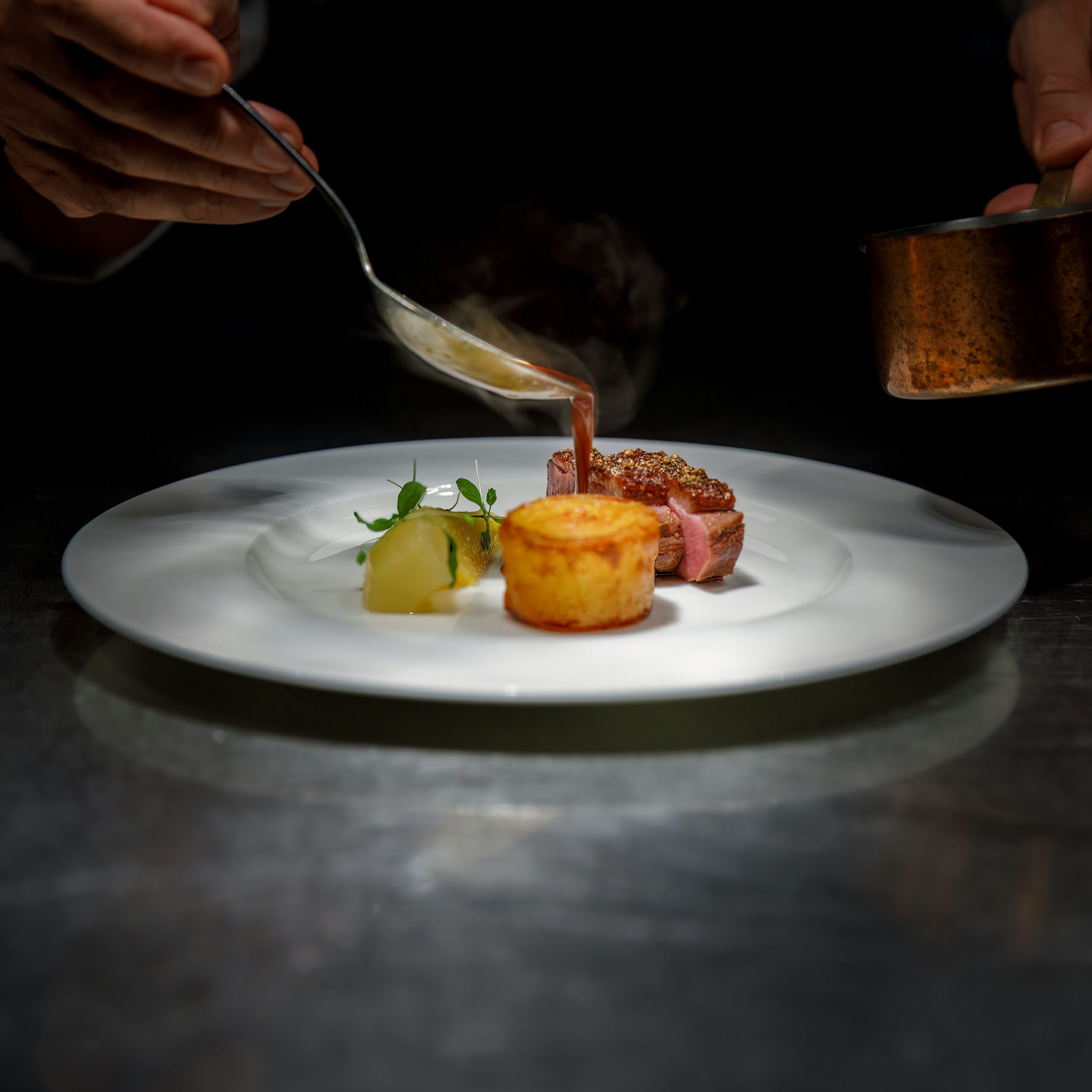Luxury Gastronomy Trends for 2025: Sustainability, Innovation and Unique Experiences
High-end cuisine constantly evolves, and 2025 will consolidate key trends combining sustainability, innovation, and multisensory experiences. Plant-based cuisine is no longer just an alternative, but a standard in fine dining. Renowned chefs are innovating with plant and laboratory proteins, creating sophisticated dishes such as beet tartar with seaweed caviar or mushroom ravioli with black truffle, responding to the growing demand for healthy and sustainable options. SUSTAINABILITY: RESPONSIBLE LUXURY Sustainability is positioned as an essential value in luxury restaurants committed to zero-kilometer cuisine, regenerative agriculture, and reducing food waste. An example of this is Noma, in Copenhagen, which maximizes the use of local ingredients with seasonal menus and fermentation techniques. Technology is also transforming gastronomy, with artificial intelligence, 3D printing, and nanogastronomy to personalize experiences. On the other hand, Sublimotion, in Ibiza, illustrates this revolution with immersive dinners that combine technology and gastronomy in a single show. MULTISENSORIAL EXPERIENCES: GASTRONOMY AS ART Multisensory experiences will be a trend, where ambiance, music, and aromas complement the dishes. Dinner by Heston Blumenthal, in London, offers dinners where food is part of a sensory narrative. Fusion cuisine, meanwhile, continues to grow with the revaluation of ancestral techniques and the incorporation of global flavors. Pujol, in Mexico City, is
The Importance of Building Lasting Connections: An Essential Strategy for Business Growth
Building authentic and strategic connections becomes essential for entrepreneurs with long-term projections. Beyond traditional professional encounters, this process is about intentional, ongoing practice that opens doors to new knowledge, business insights, and exclusive opportunities. Genuine connections with professionals across various sectors not only enrich business vision but also strengthen resilience and adaptability to market changes—crucial aspects for sustained success. In this context, the right connections can become an invaluable source of ideas, innovations, and resources that fuel mutual growth. Moreover, strengthening a professional network requires identifying those with whom to collaborate purposefully along the business journey. This means going beyond immediate contacts to include sectors or profiles that, while different, can be strategically complementary. For many entrepreneurs, this diversity in connections broadens business reach, offers a more holistic perspective, and facilitates access to opportunities that might otherwise be out of reach. Maintaining and adding value to each relationship over time is key to building this network sustainably. The focus is not only on what others can offer but also on how one can contribute meaningfully whether through active listening, supporting shared initiatives, joint projects, or exchanging specialized knowledge.
Financial Technologies (Fintech): The Sector That Continues to Capture Investors’ Attention
As the business world evolves, sectors that manage to adapt and innovate are the ones leading the change. Among these, fintech (financial technology) stands out for its ability to integrate technology with financial services, improving and automating processes that were once complex and manual. From digital payments to investment management and insurance, fintech is revolutionizing the way we interact with money. A recent study by the Inter-American Development Bank (IDB) and Finnovista reveals an impressive growth in fintech in Latin America, with a 340% increase in the number of startups in recent years. Brazil leads the region with 24% of these ventures, followed by Mexico and Colombia. By 2030, fintech is expected to generate up to $1.5 trillion in revenue, a figure that reflects the growing impact of this sector. Globally, fintech investment reached $75.2 billion in 2022, though this represented a 46% decrease compared to 2021. However, investors continue to see this sector as a unique opportunity, driven by market expansion and the rising valuation of these companies. The outlook remains favorable for fintech companies that adapt to business needs and add value through innovation. According to Forbes, startups like DataSnipper have gained prominence. This fintech, which uses artificial intelligence to automate
The Best Cities to Enjoy MICHELIN Restaurants
As Confucius once said, “to know how to eat is to know how to live,” a phrase that invites us to appreciate food both for the pleasure of enjoying a great dish and for the nutritional benefits it provides. Without a doubt, eating is a pleasure for many, so much so that the tourism sector has a category dedicated exclusively to it: gastronomic tourism. For travelers, gastronomic tourism is a strong motivation when considering a destination. According to a report by La República, a survey conducted by the travel website Booking revealed that 88% of respondents consider tasting local cuisine as one of the main reasons for choosing a destination. If traveling is on your agenda for the rest of the year, here are some top cities you might consider for a unique culinary experience, as they are renowned for their gastronomic offerings centered around Michelin-starred restaurants, which have gained much popularity. According to the latest figures published last year, Tokyo leads with 200 Michelin-starred restaurants, with ratings ranging from 1 to 3 stars. Following this, 9,706 km away, Paris has 130 Michelin stars. And to not leave it there, I also want to share two restaurants in each destination that, may
Shaping Culinary Leaders: Katy Paola Rosario and Her Experience at the Basque Culinary Center
Katy Paola Rosario, a young woman brimming with passion and enthusiasm for cooking, has made her mark in the gastronomic world of San Sebastián, Spain. Her talent was recognized when she received a scholarship to the prestigious Basque Culinary Center, thanks to her extraordinary participation in the latest edition of Cocina Creativa. This project, driven in collaboration with the Instituto Nacional de Formación Técnico Profesional (INFOTEP), goes beyond traditional teaching and becomes a true catalyst of opportunities for Dominican youth. For five intense weeks, Katy dedicated herself to improve her culinary techniques, participating in a program that challenges and expands students' skill. Under the guidance of renowned chefs, Katy not only improved her skills but also acquired new techniques that prepare her to face the challenges of the competitive culinary world. Despite the program's intensity, Katy describes her experience as incredible. "I have learned that perseverance, resilience, discipline, and optimism can take us far. Thanks to the teachers who have taught me in this short time
Impact of AI on the Future of Operational Management in Business
I'm sure by now you've heard countless times about the positive impact that artificial intelligence (AI) has when implemented in businesses as a mechanism for innovation and efficiency in operational management. Today, I can tell you that this is only the beginning, so prepare yourself for the coming years when you will continue to hear about this topic and success stories of companies taking advantage of this opportunity and leveraging the advances of this technology. All signs indicate that companies will increase their investment in artificial intelligence in the coming years. A few months ago, La República shared an article on "Artificial Intelligence in Latin America," published by MIT Technology Review. Among the relevant data from the research, it was mentioned that 60% of the companies in the sample started incorporating artificial intelligence in the last three years, and 20% did so in 2023. Furthermore, 71% of the companies recognized that artificial intelligence has enormous potential for their businesses, and those with the most leadership in the field plan to allocate 15% of their technology budget to artificial intelligence in the coming years. A success case where the implementation of artificial intelligence plays a crucial role is Amazon, as reported by The
Michelin Restaurants You Can’t Miss
One of life's greatest pleasures is enjoying a good dish, and even more so when it's a new gastronomic experience. For any traveler, gastronomy is one of the main reasons for traveling. According to a study conducted by the digital travel agency Booking, 88% of travelers state that one of their main motivations when choosing a destination is tasting local cuisine. Therefore, I wanted to create a list to share the best cities with Michelin-starred restaurants, as this distinction guarantees an explosion of flavors and culinary authenticity. While it's true that traveling doesn't necessarily mean doing it in a group, solo trips are also ideal for spontaneous getaways, moments of reflection, or even self-discovery. If you enjoy traveling alone and have Singapore on your list of destinations, you can't miss Burnt Ends. The experience begins the moment you enter the restaurant, which boasts a vibrant and sophisticated atmosphere. With one Michelin star, Burnt Ends offers an open kitchen where you can appreciate the cooking process of the dishes, with meat being their main specialty. If you're a wine lover, they have an interesting wine list. On the other hand, if you find yourself in the city that never sleeps, New York, Le
Why Japan and Colombia Should Be on Every Food Lover’s List 2024
Tourist destinations not only offer entertainment and an immersion into different cultures but also represent an opportunity to explore and enjoy local cuisine. As Confucius said, "To know how to eat is to know how to live," and on these journeys, you never stop learning
The Current Dilemmas of the Gastronomic Sector
In the vast world of gastronomy, where flavors intertwine with experiences and opportunities, a challenging panorama emerges. From the influence of new policies to changing trends in consumption and the effects of climate change, enthusiasts in this sector must do more than just be prepared; they must adapt to consider new innovations that allow them to thrive amid constantly evolving challenges. Impact of Healthy Taxes and Single-Use Plastic In some countries, rather than merely requesting, the implementation of measures to promote sustainability, such as regulation on single-use plastic, has been demanded. This has led to a series of financial adjustments in the gastronomic sector, especially in countries like Colombia. Although these measures aim to promote more environmentally friendly practices, the reality is that even the smallest changes can have a significant impact on the operating costs of establishments. Faced with this panorama, entrepreneurs face the challenge of balancing the adoption of these measures with profitability, while also maintaining attractive prices for consumers. It is essential to develop strategies that allow compliance with regulations for a greener future, without compromising the economic viability of businesses. The Rise of Conscious Eating The current consumer trend has undergone a significant change, and the gastronomic sector is no
Artificial Intelligence in the Kitchen: How It’s Changing the Future of Gastronomy
The future of gastronomy is being transformed by artificial intelligence (AI), a change that manifests in multiple ways. From haute cuisine to fast-food restaurants, AI is reshaping how we prepare and experience food. Innovation in Haute Cuisine: Renowned chefs, like Andoni Luis Aduriz of Mugaritz restaurant, are employing AI to create new flavor and texture combinations. Thanks to machine learning algorithms, it's possible to explore unprecedented combinations that enrich gastronomy with innovations and unparalleled culinary experiences. Efficiency in fast cooking: The automation of processes and customization of menu recommendations through self-service kiosks are just a few examples of how AI is enhancing efficiency in fast-food restaurants. Supply chain management and food traceability are also key areas where AI is making a difference, ensuring quality and reducing waste. Cutting-edge cooking techniques: AI has enabled the implementation of advanced techniques like sous vide and low-temperature vacuum cooking. These methods allow for cooking food at precise temperatures, guaranteeing consistent results and intense flavors. Additionally, AI-powered kitchen robots are assisting in complex tasks, facilitating chefs' experimentation with innovative flavors and textures. Personalization of the gastronomic experience: AI is enabling unprecedented customization in the culinary experience. From menus tailored to individual dietary preferences and needs to facial recognition of










